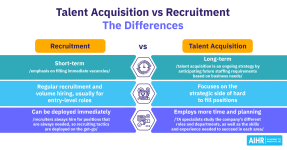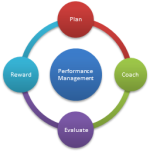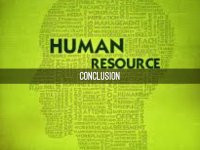Post content
In today's fast-evolving corporate world, Human Resources (HR) is no longer just about recruitment and payroll. It has become a strategic part of organizations, driving growth, building culture, and shaping the future of businesses.
Human Resources plays a key role in attracting the right talent, developing skills, and retaining employees. Companies have realized that their biggest asset is their people, and HR is responsible for managing this asset effectively.
Recruitment and Talent Acquisition
HR professionals are at the forefront of hiring the right people for the right roles. A strong recruitment process ensures that candidates are not just skilled, but also a good fit for the company’s culture. Today, HR teams use technology and data analytics to improve
hiring efficiency and accuracy.
Employee Engagement and Motivation
One of the most important responsibilities of HR is keeping employees engaged. Regular communication, recognition programs, wellness initiatives, and feedback systems are all handled by HR. Engaged employees are more productive, stay longer in the company, and contribute to a positive work culture.
Learning and Development
The need for upskilling and reskilling has increased due to rapid technological advancements. HR departments now invest in training and development programs to ensure employees continue to grow professionally. This not only benefits individuals but also strengthens the company.
Handling Conflicts and Workplace Ethics
Conflicts are inevitable in any organization. HR acts as a mediator to resolve issues fairly and maintain a healthy work environment. They also ensure that employees follow workplace ethics, guidelines, and legal standards.
Performance Management
Setting goals, evaluating performance, and providing constructive feedback are core parts of HR. A transparent performance management system helps employees understand their strengths and areas for improvement, leading to better outcomes for both individuals and the company.
Diversity and Inclusion
Modern HR focuses on creating an inclusive work environment where people from diverse backgrounds feel welcome and valued. Diversity leads to better decision-making, creativity, and innovation in the workplace
Conclusion
Human Resources is now a strategic partner in business success. As companies compete for talent and focus on creating better workplaces, the role of HR has expanded significantly. Whether it's through data-driven hiring or employee well-being programs, HR is shaping the future of work. For students and young professionals, understanding HR can open up new career opportunities and help build people-centric leadership skills.
In today's fast-evolving corporate world, Human Resources (HR) is no longer just about recruitment and payroll. It has become a strategic part of organizations, driving growth, building culture, and shaping the future of businesses.
Human Resources plays a key role in attracting the right talent, developing skills, and retaining employees. Companies have realized that their biggest asset is their people, and HR is responsible for managing this asset effectively.
Recruitment and Talent Acquisition
HR professionals are at the forefront of hiring the right people for the right roles. A strong recruitment process ensures that candidates are not just skilled, but also a good fit for the company’s culture. Today, HR teams use technology and data analytics to improve
hiring efficiency and accuracy.
Employee Engagement and Motivation
One of the most important responsibilities of HR is keeping employees engaged. Regular communication, recognition programs, wellness initiatives, and feedback systems are all handled by HR. Engaged employees are more productive, stay longer in the company, and contribute to a positive work culture.
Learning and Development
The need for upskilling and reskilling has increased due to rapid technological advancements. HR departments now invest in training and development programs to ensure employees continue to grow professionally. This not only benefits individuals but also strengthens the company.
Handling Conflicts and Workplace Ethics
Conflicts are inevitable in any organization. HR acts as a mediator to resolve issues fairly and maintain a healthy work environment. They also ensure that employees follow workplace ethics, guidelines, and legal standards.
Performance Management
Setting goals, evaluating performance, and providing constructive feedback are core parts of HR. A transparent performance management system helps employees understand their strengths and areas for improvement, leading to better outcomes for both individuals and the company.
Diversity and Inclusion
Modern HR focuses on creating an inclusive work environment where people from diverse backgrounds feel welcome and valued. Diversity leads to better decision-making, creativity, and innovation in the workplace
Conclusion
Human Resources is now a strategic partner in business success. As companies compete for talent and focus on creating better workplaces, the role of HR has expanded significantly. Whether it's through data-driven hiring or employee well-being programs, HR is shaping the future of work. For students and young professionals, understanding HR can open up new career opportunities and help build people-centric leadership skills.




